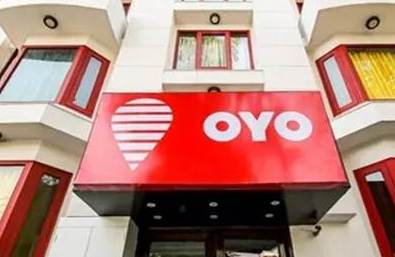New Delhi: Ritesh Agarwal, OYO’s Founder and Chairman, had revealed in a recent tweet that over a million people booked an OYO on New Year’s weekend. He said that around 58 per cent of them made same-day bookings December 31. The number is impressive, especially in comparison to the homegrown unicorns bookings back in 2016.
Back then, with 102,000 bookings, the Gurugram-headquartered travel tech platform clocked about 20 per cent bookings vs what it accomplished during 2021 New Year’s Eve. This gives a sense of OYO’s journey in the Indian market, from when it was just about gaining ground in the country, to today.
The company, in its public filing, says its app has been downloaded over 100 million times, which makes it the third-most downloaded travel app in the world after Airbnb and Booking.com. OYO did this in about eight years, the fastest among the three.
OYO, founded by Agarwal in 2013, has gained more than 9 million members in its loyalty programme, generating direct demand from customers.
A glance through OYO’s Draft Red Herring Prospectus (DRHP) reveals more such positive news on the customer front. But is this claim substituted by numbers? Let’s take a closer look.
According to the prospectus, OYO witnesses 78 per cent of repeat and organic demand globally. Within this, India demonstrates a really healthy 90 per cent repeat and new organic demand. This is an unusually high number of returning customers.
This is likely driven by factors such as OYO’s wide choice of hotels or storefronts as OYO would like to call them, affordability and ease of transaction right from choosing the hotel, booking to post stay. This also fuels OYO’s revenue generating capability for its hotel owners.
As per the prospectus, with over 9.2 million members, including 2.1 million members who pay subscription fees for higher membership tiers, in India as of March 31, 2021, it’s loyalty program OYO Wizard, is one of the largest one run by any leading travel or food brands in India.
OYO doesn’t mention other brands by name in the prospectus, but based on available industry data, one can judge that it has marginally less loyalty members than Intermiles, formerly known as JetPrivilege and has 4 times the member base of Zomato’s loyalty programme.
Granted, OYO has a high number of returning customers and a strong loyalty and referral programme. But how many of its customers stay loyal over a longer period of time?
The prospectus shows a comparison with an unnamed competitor (which, in all likelihood, is Airbnb), whose second year retention is at 40 per cent and fourth year retention is at 45 per cent vs 74 per cent and 60 per cent respectively for OYO.
According to estimates, roughly one third of OYO’s customers are small and medium business travellers, another one third millennials; around 10 per cent are corporate and 15 per cent are leisure travellers.
It is also interesting to note that at 70 per cent, a high proportion of OYO bookings are done on the day of stay. OYO’s dense presence in key clusters and relatively low ‘spike prices’ has likely conditioned such a customer behaviour.
The affordable pricing and dense presence has also spawned new use cases such as ‘workcation’, a quiet space to study during exams, stay at a nearby OYO if working late at office, while home is under renovation, watch cricket matches or simply spend time with family and friends in a different setting.
Then there is also the capability of providing, end-to-end service that a premium hotel traveller may take for granted but is a newly found convenience for budget travellers. For instance, customers can access and manage various in-room hotel services through its mobile application, including receiving live status updates of housekeeping services and food and beverage orders.
OYO’s customer servicing cost has reduced by 70 per cent since pre-Covid levels driven by tech-led initiatives such as remote operation audits and Yo! Chat – a self-serve chatbot for customers.
The company has also introduced OREO, a refund engine that reduced the turnaround time for refunds process from 60 hours to 62 minutes.
During the pandemic, OYO’s initiatives such as Sanitised Stays, Sanitised Before Your Eyes, Contactless Check-in, partnership with Unilever, where the company provided hygiene kits for guests and hygiene education, caught much attention.
In India, as part of its “OYO Care” initiative, the company had partnered with state ministries, local authorities and hospitals to offer its hotels at affordable prices as quarantine and self-isolation facilities.
Over 90 per cent repeat and organic customers is a rarity in any industry and tough to maintain over a long period of time.
But incidents such as a guest travelling in a group, not being able to find the OYO they had booked, which caught social media’s attention, seed doubts in prospective customers’ mind, its CEO’s public apology notwithstanding.
While occasional problems persist with OYO’s customer experiences, it is pertinent to note that the tech travel platform took up a huge challenge when it entered the space with the ambition to organize a largely unorganized and small hotel and home market.
As customer expectation for service quality and reliable accommodation increases over time from the budget traveller, OYO’s ability to ensure consistent customer experience will remain at the centre stage as it heads for an IPO.







































